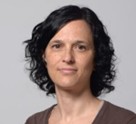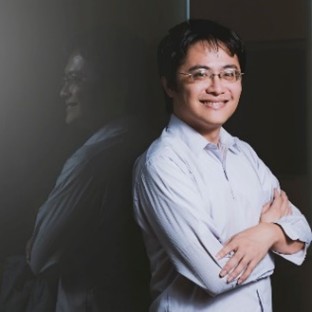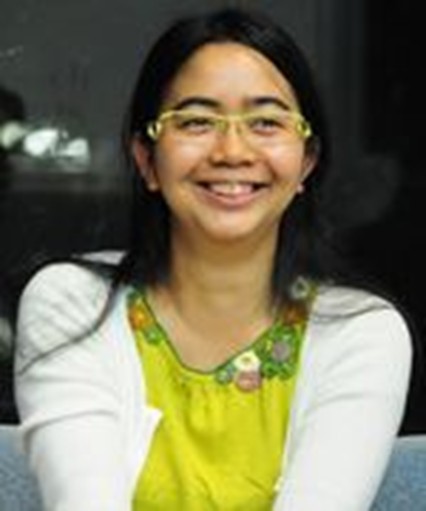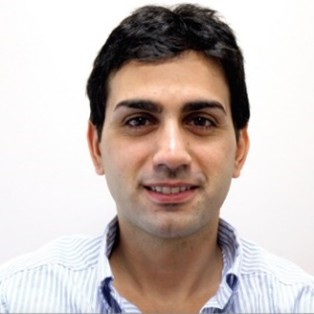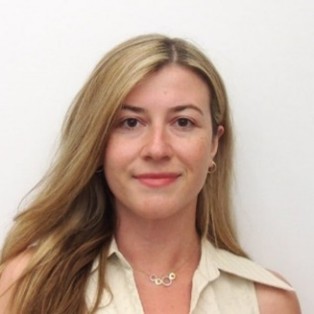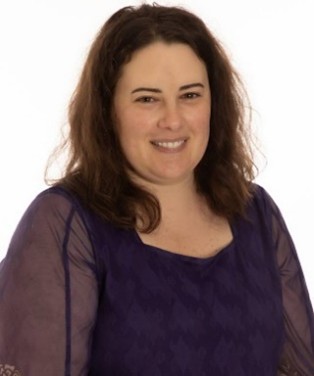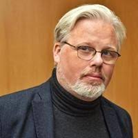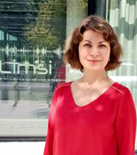 |
ISCApad #324 |
| Sunday, June 08, 2025 by Chris Wellekens |
2 ISCA News
| 2-1 | Message of ISCA President Odette Scharenborg Dear ISCA members,
New ISCA board members Every two years, half of the ISCA board positions are up for election. This year we had nine open positions on the ISCA board. It is with great pleasure that I introduce to you the nine elected ISCA board members who will dedicate their time and energy to our great association for the next four years. Their term will start in August, during the General Assembly at Interspeech 2025, Rotterdam, the Netherlands.
The following seven ISCA members have been elected onto the ISCA board for their first term:
Luciana Ferrer, Computer Science Institute, UBA-CONICET, Argentina
Hung-yi Lee, National Taiwan University
Sakriani Sakti, Nara Institute of Science and Technology, Japan
Sabato Marco Siniscalchi, University of Palermo, Italy
Berrak Sisman, Johns Hopkins University, US
Jennifer Williams, University of Southampton, UK
Helena Moniz, University of Lisbon, Portugal
The following two ISCA board members have been re-elected to the ISCA board:
Joakim Gustafson, KTH, Sweden
Ioana Vasilescu, LISN CNRS & University Paris-Saclay, France I wish all new ISCA members good luck on the ISCA board!
Technical Program Committee Meeting in Delft, the Netherlands On 7 and 8 May, the technical program committee meeting (TPC meeting) was held in Delft, the Netherlands. The Interspeech 2025 TPC and lead area chairs (ACs) from the various areas met for two days to discuss paper decisions and sessions amongst others. I sincerely want to thank
The decisions for acceptance or rejection have since been sent out. Interspeech 2025 has an acceptance rate of 49.87%, with the highest number of papers (1163) ever to be presented at Interspeech. For those of you whose paper are rejected: I hope you will consider improving your paper based on the reviews and perhaps try again next year or elsewhere. For those whose papers were accepted: congratulations!
Interspeech-related news Registration is open Registration for Interspeech 2025 is open: https://www.interspeech2025.org/registration If you are an ISCA member, please have your ISCA e-mail address and ISCA membership ID ready because you will need both to verify your ISCA membership. The ISCA membership ID can be found on your personal page at http://www.isca-speech.org -> login. Please note that due to the change of ISCA database to WildApricot, your old ISCA membership number is no longer valid. If you have an accepted paper, please have the paper IDs ready.
Paper coverage Each accepted paper must be covered by at least one of its co-authors with a full, student, or retired registration (can be at a “light” rate). Participants registering as student or retired will be able to cover two papers for presentation and publication, and participants with a full registration can cover a maximum of four papers.
Preliminary programme Preliminary programme will be available at the end of June.
ISCA Travel Grants for Interspeech 2025! We are excited to welcome the student and young researcher community working in speech science and technology across the globe to attend the upcoming Interspeech 2025 in Rotterdam, the Netherlands. Last year we implemented a new travel grant scheme. We moved from a fixed travel grant amount scheme to a variable travel grant scheme. This is motivated by the thought to help students from underrepresented areas with higher grant amounts. There are 3 different grant amounts based on the country of affiliation of the grantee:
Students and young researchers who have an accepted paper(s) at Interspeech 2025 can apply for an ISCA Travel Grant through https://services.isca-speech.org/iscagrants/admin.php. More information can be found through https://isca-speech.org/Grants and at the Interspeech 2025 website: https://www.interspeech2025.org/travel-grants. Please note that the deadline is June 6.
See you all in Rotterdam, the Netherlands!
Odette Scharenborg ISCA President
| |||||
| 2-2 | ELRA/ISCA Special Interest Group: Under-resourced Languages (SIGUL) ELRA/ISCA Special Interest Group: Under-resourced Languages (SIGUL) Created in April 2017, SIGUL is a joint Special Interest Group of the European Language Resources Association (ELRA) and of the International Speech Communication Association (ISCA). This year, SIGUL enters the fifth year and now has more than 300 members. The SIGUL Board is elected every two years, and last year SIGUL had a new Board officer: Chair and ISCA liaison representative: Sakriani Sakti (JAIST, Japan) Co-chair and ELRA liaison representative: Claudia Soria (CNR-ILC, Italy) Secretary: Maite Melero (Barcelona Supercomputing Center, Spain)
SIGUL has organized various events, including the Spoken Language Technologies for Under-resourced languages (SLTU) Workshop Series, which has been organized since 2008, and Collaboration and Computing for Under-Resourced Languages (CCURL), which has been organized as LREC Workshop since 2014. From this year, the tradition of CCURL-SLTU will be united into one SIGUL Workshop and planned to be held as a Satellite Workshop of LREC or INTERSPEECH. Annual Meetings of the ELRA/ISCA Special Interest Group on Under-Resourced Languages (SIGUL 2022) were held successively: SIGUL2022 in Marseille (FR) on 24-25 June 2022 as Satellite Workshop of LREC 2022, SIGUL 2023 in with ISCA as INTERSPEECH satellite workshop (https://sigul-2023.ilc.cnr.it/), SIGUL 2024 with ELRA as LREC-COLING workshop (https://sigul-2024.ilc.cnr.it/). The SIGUL venue provide a forum for the presentation of cutting-edge research in NLP/SLP for under-resourced languages to both academic and industry researchers, and also offer a venue where researchers in different disciplines and from varied backgrounds can fruitfully explore new areas of intellectual and practical development while honoring their common interest of sustaining less-resourced languages. Topics include but are not limited to:
Additionally, we are currently organizing LT4All 2.0 in collaboration with UNESCO, which
SIGUL Board Sakriani Sakti Claudia Soria Maite Melero
| |||||
| 2-3 | ISCA Language SIGS ISCA supports speech communication research activities in various languages. The individual languages have equal interest, but they may involve have different technical or scientific problems. For example, some languages are tonal, while others are not; Some languages have only one writing system, while others have several. In the ISCA community, we have 6 language Special Interest Groups (SIGs) for Chinese, French, Italian, Iberian, Indian, and Russian. Each SIG is organised by researchers who speak the language of interest as L1 and others who have a technical or scientific interest in the language. Each SIG sponsors domestic and international research activities, and representative members of the SIGs attend a Lang SIG meeting every year during the INTERSPEECH conference. In this meeting, recent activities of each SIG are reported, and new ideas are exchanged. We also review what ISCA can do for the SIGs and what the SIGs can do for ISCA. Each SIG has its own web page, and you can visit the pages here. Prof. Nobuaki MINEMATSU The University of Tokyo Japan
| |||||
| 2-4 | ISCA Special Interest Group (SIG) 'Spoken Language Translation'
ISCA SIG “Spoken Language Translation” Aims. The SIG SLT covers all aspects of spoken language translation — simultaneous translation and interpretation, speech dubbing, speech-to-text translation, speech-to-speech translation, cross-lingual communication including paralinguistic, emotional or multimodal information, and related areas SIG SLT will (a) provide members of ISCA with a special interest in spoken language translation and its related areas with a means of exchanging news of recent research developments and other matters of interest in spoken language translation; (b) organize challenges and evaluation campaigns; (c) sponsor and organize the International Conference on Spoken Language Translation (IWSLT), meetings, satellites, and tutorial workshops in spoken language translation, operating within the framework of ISCA's by-laws for SIGs; and (d) make available open-source code and data resources, best practices and tools, and evaluation metrics relevant to spoken language translation.
Motivation. Recent interest in speech translation and simultaneous translation by machine has been growing explosively, due to continued performance advances and a growing international need for simultaneous translation and interpretation, speech dubbing, speech-to-text translation, speech-to-speech translation, cross-lingual communication including paralinguistic, emotional or multimodal information, and related areas. The under-covered elements in the current research are, for instance, incremental simultaneous speech-to-speech translation, paralinguistic translation, speaking style translation across languages. The proposed SIG will be organized by the members who are interested in spoken language translation/interpretation from various related areas such as ASR, TTS, and MT. SIG SLT emerged from over two decades of organizing the International Conference on Spoken Language Translation (IWSLT) and its predecessor C-Star, scaling operations in response to significant growth in the field. The organizers of IWSLT and partners believe it is now time to join with ISCA by creating an ISCA SIG. IWSLT has a 15-year track record of profitability; it runs the premier benchmarking campaign on spoken language translation annually accompanied by an international scientific conference to present and discuss results.
| |||||
| 2-5 | ISCA SIG SLATE 'Speech and Language Technologies in Education' The aims of ISCA SIG 'Speech and Language Technologies in Education'
| |||||
| 2-6 | ISCA-PEDRAC: a new service of ISCA. ISCA-PECRAC (Postdoc & Early Career Researcher Advisory Committee) Annual Gathering aims to provide an opportunity for postdoc & early career researchers to meet and communicate at INTERSPEECH. In the framework of ISCA-PECRAC, we would like:
Contacts: Yaru Wu (yaru.wu@sorbonne-nouvelle.fr) Berrak Sisman (berrak_sisman@sutd.edu.sg)
| |||||
| 2-7 | ISCA social networks We encourage all members tokeep contact with ISCA via our social nets. Also you will bde kept informed about all events on our website. This is particularly important in this time where due to the coronavirus, many modifications may be brought to the conference.
ISCA Facebook : https://www.facebook.com/iscaspeech/ ISCA Twitter : https://twitter.com/ISCAFOX ISCA SAC Student Facebook : https://www.facebook.com/groups/98794207409/ website : www.isca-speech.org
| |||||
| 2-8 | Women in Speech Research ISCA is committed to supporting diversity in speech communication, and celebrating speech
| |||||
| 2-9 | SProSIG News Dear SProSIG Members,
I’m pleased to share two conference announcements: - Tone and Intonation 2025 - Prosody of Uralic Languages 2025
Details follow.
Prosody of Uralic languages
Nigel Ward, SProSIG Chair, Professor of Computer Science, University of Texas at El Paso
| |||||
| 2-10 | Elected SProSig officers for 2024-2026 Dear SProSIG members,
The election of officers is now complete. Thank you for voting. Based on the results, SProSIG PAC has elected 5 officers for the term 2024-2026.
The new officers are; Plinio Barbosa Aoju Chen Martine Grice Jürgen Trouvain Nigel Ward (in alphabetical order)
| |||||
| 2-11 | SProSIG events Dear Speech Prosody members, I’m pleased to announce two upcoming events:
Details for both are in the ' Other Events' section
Nigel Ward, Professor of Computer Science, University of Texas at El Paso CCSB 3.0408, +1-915-747-6827 nigel@utep.edu https://www.cs.utep.edu/nigel/
| |||||
| 2-12 | Call for Bids for Interspeech 2029 Bids for Interspeech 2029 ISCA now invites bids for hosting Interspeech 2029. Interspeech conferences include papers on all the scientific and technological aspects of Speech. More than 1,500 participants from all over the world attend the conference annually to present their work in oral and poster sessions. Several satellite workshops and a Scientific and Industrial Exhibition highly enrich the conference content.Interspeech conferences may be held in any country, although they generally should not occur on the same continent in two consecutive years. After this year's Interspeech conference in Rotterdam, the next conferences will be held in Sydney, Australia in 2026, Sao Paolo, Brazil in 2027, and San Antonio, TX, USA in 2028.In order to prepare the bid, please contact the ISCA conference coordinators at conferences@isca-speech.org well in advance of the deadline in order to prepare a high-quality bid. Each bid needs to include: • the bidding and budget template
• a detailed description of the bid
• other material which might be necessary for evaluating the bid The deadline for submitting a bid is November 1, 2025.
Guidelines on how to prepare an Interspeech conference can be found here.
|

